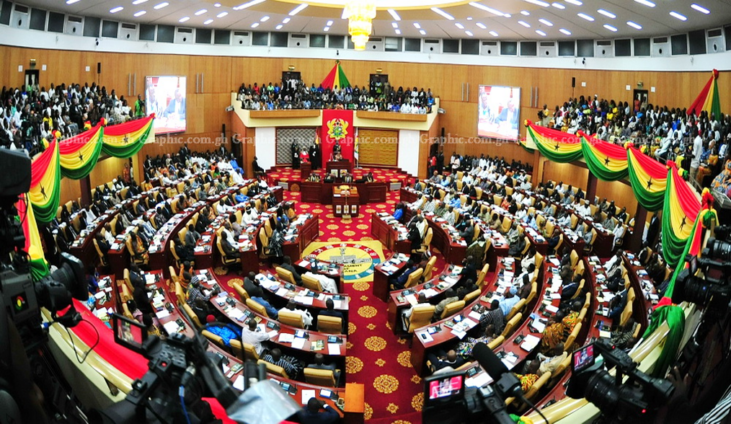
Audio By Carbonatix
The president of the Ghana Association of Bankers (GAB) has raised questions on the financial viability of contesting for parliamentary seats in Ghana.
John Awuah in a thought-provoking post shared on his LinkedIn page on Tuesday, September 17, expressed his concerns regarding the high costs associated with running for parliamentary elections.
He noted that the expenses incurred during party primaries and the general elections often seem disproportionate to the official earnings of Members of Parliament (MPs).
“The sheer cost of going through primaries and the main elections vis-a-vis the potential official earnings from being an MP in Ghana leaves one to wonder why the craze to Parliament,” he wrote.
Mr Awuah further highlighted that, based on some unofficial records, it costs, on average, between GH¢ 550,000 and GH¢1,200,000 to successfully contest competitive party primaries and the general parliamentary election.
However, when juxtaposed with the average potential compensation of an MP over a four-year term—estimated at between GH¢1,100,000 and GH¢1,400,000—the figures simply do not add up.
“Technically, MPs spend on getting elected as MP in one election cycle almost as much as what they potentially could earn as MPs over four years. I can’t think far with this level of financial sacrifice by our MPs,” he said.
Mr Awuah added that he struggles to rationalise why candidates would make such a significant financial commitment to serve as MPs.
His concerns reflect a broader debate about the motivations of aspiring MPs and the political system in Ghana.

While serving as a lawmaker is widely seen as an honourable pursuit, his analysis suggests that financial considerations may not always align with the ideals of public service.
“I’m not sure this is an exemplary and prudent use of financial resources except if there is a bigger earning we don’t know or can’t see,” Awuah observed, casting a shadow of doubt over whether the financial sacrifices made by MPs are sustainable or driven by a deeper financial incentive.
He concluded his post with an open question to Ghanaian MPs, saying, “Dear Hon MPs, please help us to understand this simple math.”
Ghana’s political financing landscape
The concerns about funding resources by politicians have long been echoed in political circles.
The costs of mounting a successful political campaign in Ghana have been scrutinised for years, with the issue being especially pertinent in a country where high-profile candidates often receive substantial backing from financial sponsors.
However, the reliance on significant funds for campaigns has also raised concerns about potential avenues for corruption, as elected MPs might be compelled to make up for their financial investments through questionable means.
In recent years, there have been numerous calls for reforms to curb the influence of money in politics, including public campaign financing and stricter regulations on party primaries.
While no comprehensive solution has been adopted yet, the high cost of running for office continues to be a point of contention.
As the 2024 general elections draw near, these reflections are likely to spark further discussions among stakeholders in Ghana’s political system about how to balance the democratic process with the financial realities of contesting elections.
Latest Stories
-
Ghana is rising again – Mahama declares
2 hours -
Firefighters subdue blaze at Accra’s Tudu, officials warn of busy fire season ahead
3 hours -
New Year’s Luv FM Family Party in the park ends in grand style at Rattray park
3 hours -
Mahama targets digital schools, universal healthcare, and food self-sufficiency in 2026
3 hours -
Ghana’s global image boosted by our world-acclaimed reset agenda – Mahama
3 hours -
Full text: Mahama’s New Year message to the nation
3 hours -
The foundation is laid; now we accelerate and expand in 2026 – Mahama
4 hours -
There is no NPP, CPP nor NDC Ghana, only one Ghana – Mahama
4 hours -
Eduwatch praises education financing gains but warns delays, teacher gaps could derail reforms
4 hours -
Kusaal Wikimedians take local language online in 14-day digital campaign
5 hours -
Stop interfering in each other’s roles – Bole-Bamboi MP appeals to traditional rulers for peace
5 hours -
Playback: President Mahama addressed the nation in New Year message
5 hours -
Industrial and Commercial Workers’ Union call for strong work ethics, economic participation in 2026 new year message
7 hours -
Crossover Joy: Churches in Ghana welcome 2026 with fire and faith
7 hours -
Traffic chaos on Accra–Kumasi Highway leaves hundreds stranded as diversions gridlock
7 hours

